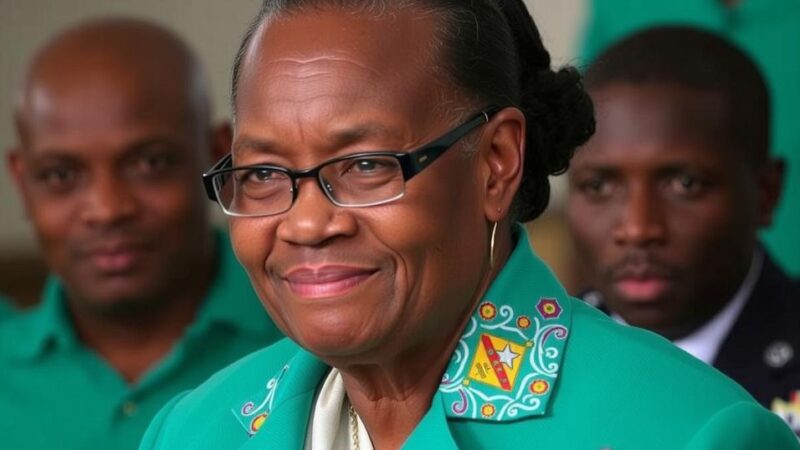Romania’s Social Democratic Party is set to retain its parliamentary majority despite the rise of the far-right Alliance for Uniting Romanians. Early results indicate 24 percent for the SDP and 18 percent for the Alliance. Voter turnout is the highest in two decades, reflecting growing political engagement amid a complex landscape influenced by economic challenges and nationalist sentiments.
The left-leaning Social Democratic Party (SDP) of Romania appears poised to retain its majority in the upcoming parliamentary elections, according to early results. The SDP garnered approximately 24 percent of the votes, while the far-right Alliance for Uniting Romanians has made significant gains, obtaining about 18 percent. Other political factions, including the National Liberal Party and the Save Romania Union, received 14 percent and 10 percent of the vote, respectively.
Voter turnout has reached the highest level in 20 years, with an estimated 52.3 percent of eligible voters participating—over 9 million individuals exercising their democratic rights. The final results are pending the counting of ballots from Romanian citizens residing abroad, who may lean towards conservative parties. This election is noteworthy, occurring amid a growing trend of support for far-right and anti-establishment movements that challenge Romania’s pro-European Union and pro-Ukraine stance.
Romania’s role as a NATO member and its assistance to Ukraine in the context of ongoing Russian aggression is a significant backdrop for these elections. Notably, the country has pledged to donate one of its Patriot Missile Systems to Ukraine. Key issues in the electoral discourse have included Romania’s economic challenges, particularly its high budget deficit, which stands at 8 percent of GDP, the highest in the European Union.
Moreover, the emergence of Calin Georgescu as a hard-right presidential candidate, who previously secured unexpected support in the first round of voting, underscores the political landscape’s volatility. His controversial positions and history, paired with effective campaign strategies on platforms such as TikTok, reflect a broader trend of shifting political sentiment in Romania. Georgescu’s upcoming face-off against candidate Elena Lasconi accentuates the significance of the electoral competition where democratic integrity is at stake.
Romania is currently experiencing a pivotal moment in its political landscape, particularly with the rise of far-right movements alongside a left-leaning governing party. The Social Democratic Party (SDP) has led Romania while maintaining support for Euro-Atlantic integration, yet faces challenges from opposition parties advocating for ultra-nationalist views. The election results could determine not only the direction of internal policy but also Romania’s stance towards ongoing geopolitical tensions, especially concerning relations with Ukraine and Russia. Furthermore, demographic factors, including a high proportion of voters living abroad, are likely to influence the final outcomes. With historical tensions rooted in Romania’s post-communist transition and its relationship with both the EU and NATO, understanding current voter sentiment is crucial. The electoral environment is also shaped by rising concerns over economic health and national identity, which far-right proponents seek to address through populist rhetoric. Thus, the ongoing elections are a litmus test for Romania’s democratic resilience in the face of rising extremism and populism.
In conclusion, Romania’s parliamentary elections reveal a complex interplay of political forces, with the governing Social Democratic Party poised to maintain its majority against a resurgent far-right opposition. With a record voter turnout and significant gains by nationalist parties, the outcomes will likely shape Romania’s future direction in European integration and geopolitical strategy. The election underscores critical national issues, including economic stability and democratic values, amid challenges posed by fluctuating public sentiments and external pressures.
Original Source: www.aljazeera.com







